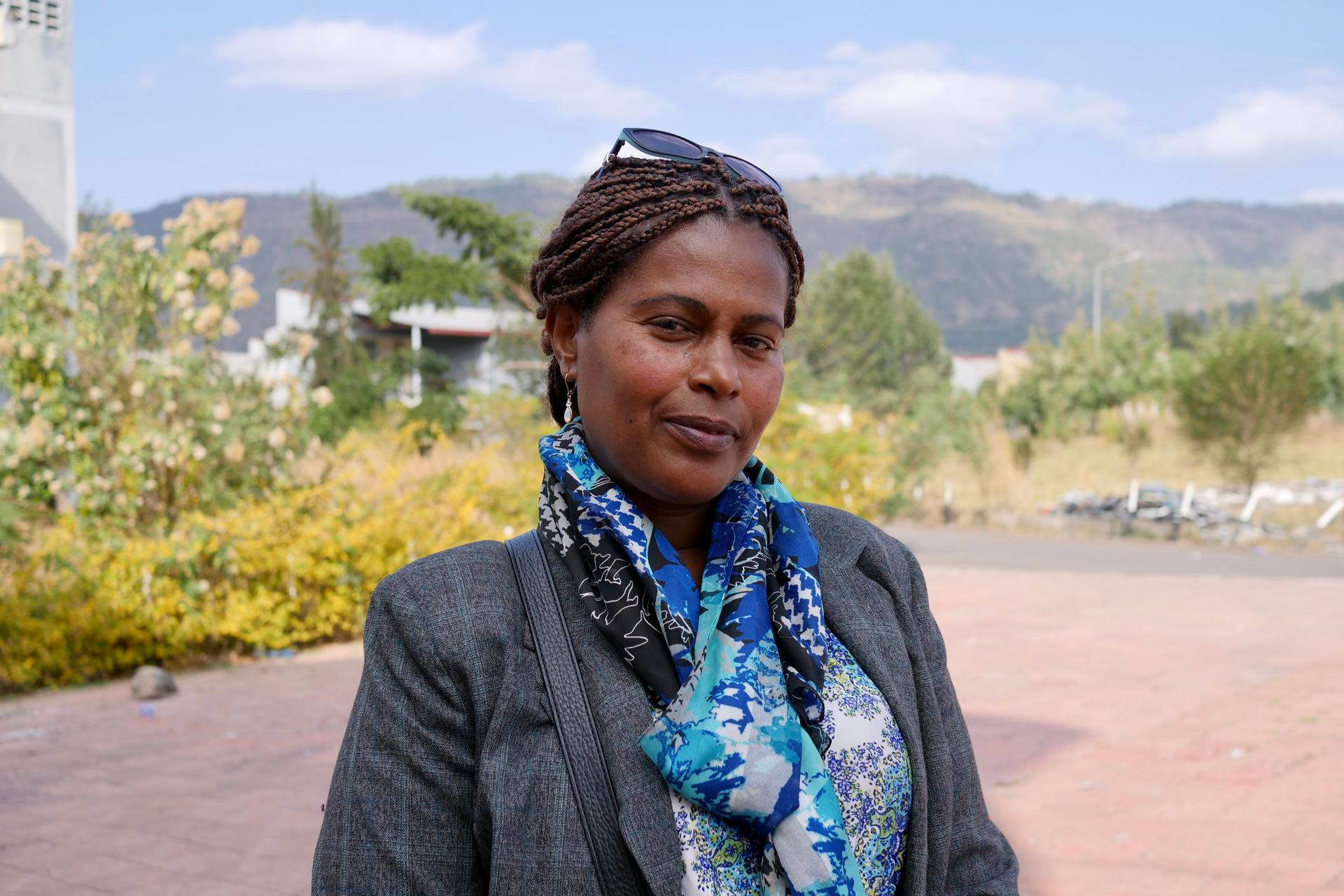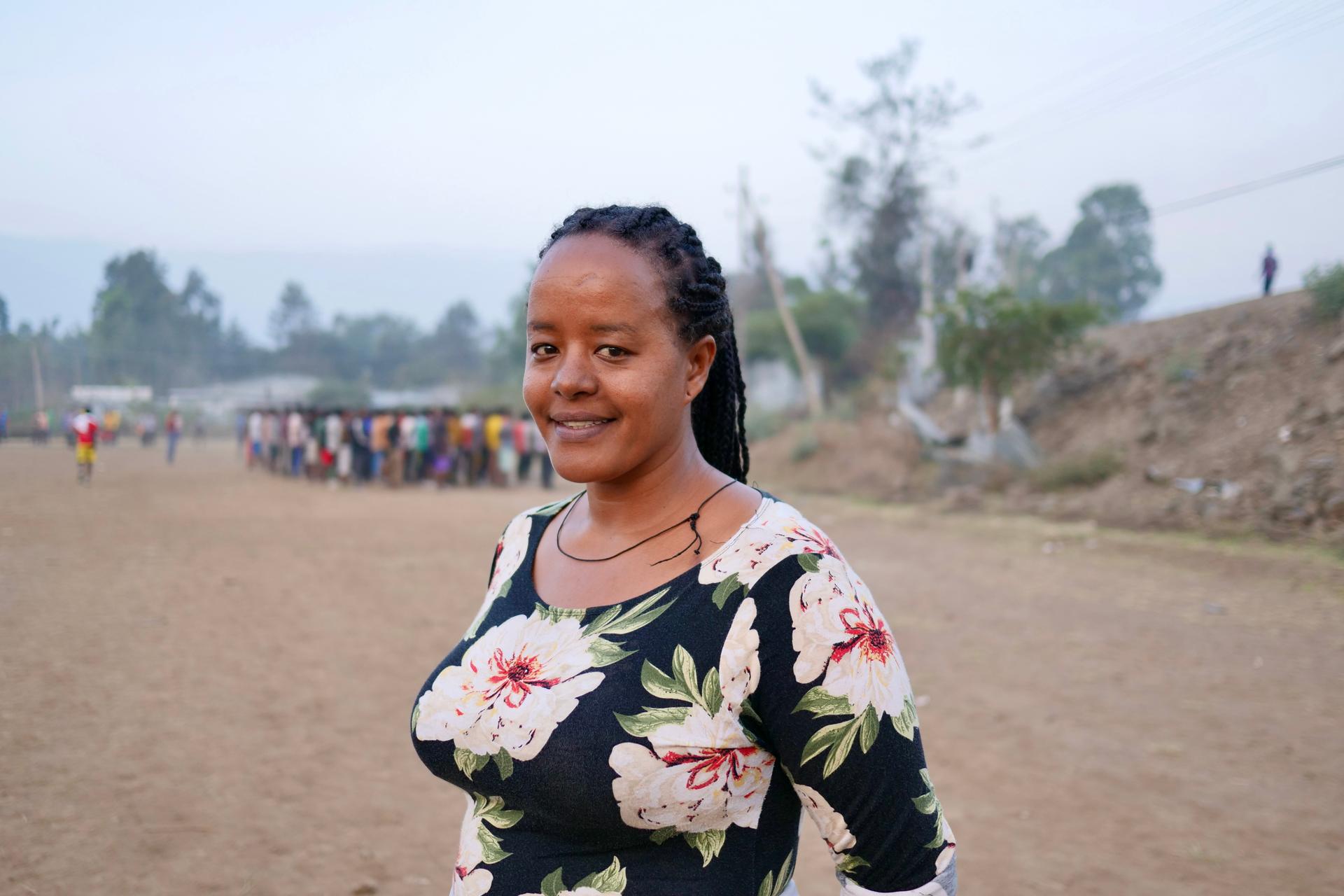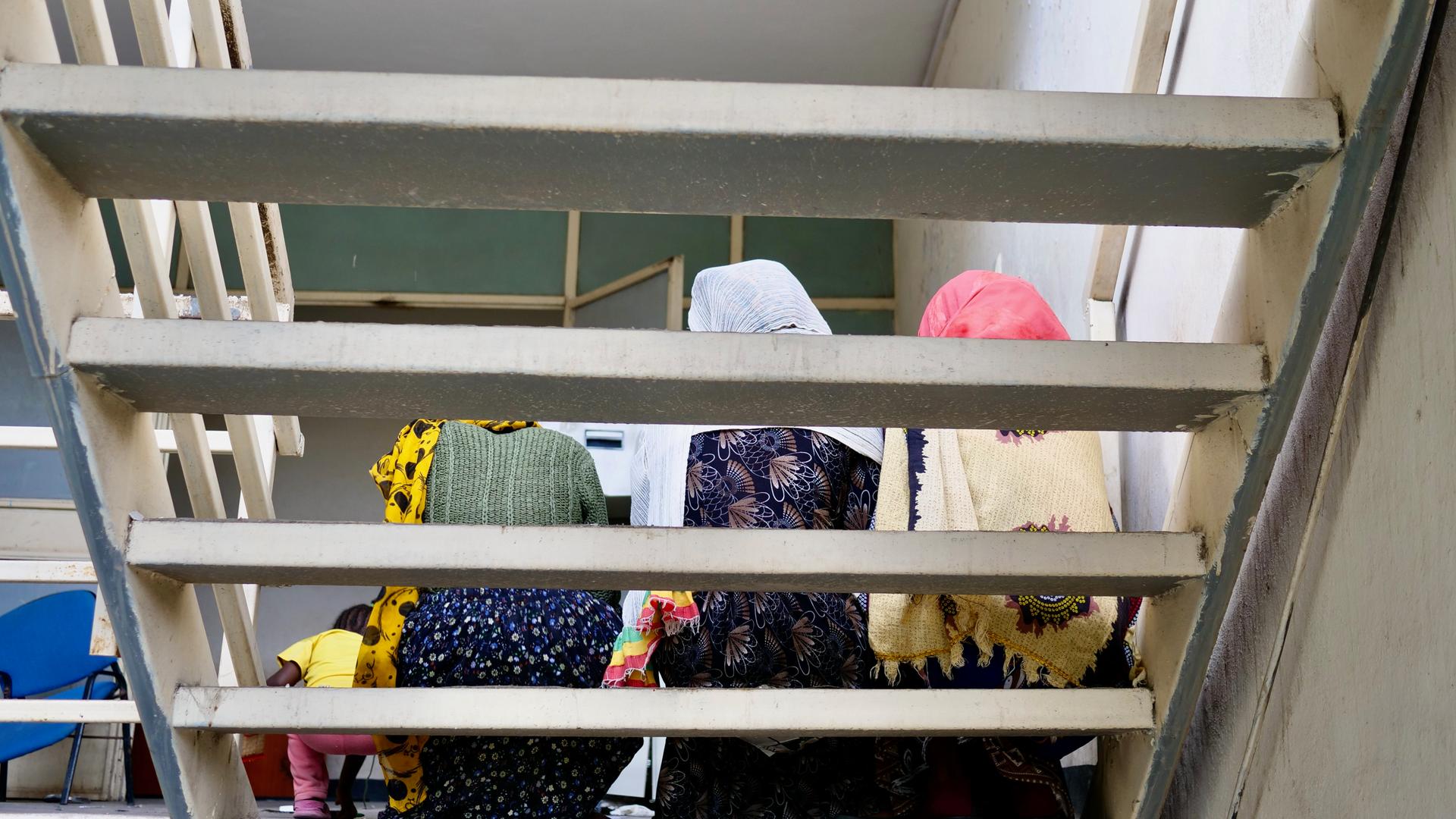On the grounds of Woldiya University in the Amhara region of northern Ethiopia, hundreds of women — young and old — sit outside eating and chatting during a lunch break.
They are survivors of mass sexual violence and rape at the hands of Tigrayan fighters who held parts of this region for months last year.
Related: Lalibela: A holy city in recovery amid ongoing conflict in Ethiopia
The university is providing space for support services for them, including medical screenings and mental health counseling.
“It’s the worst. It is very extraordinary. Psychologically, it is very extreme — hearing their painful experiences.”
“It’s the worst. It is very extraordinary,” said psychological counselor Mastewal Mekonnen of the women’s testimonies. “Psychologically, it is very extreme — hearing their painful experiences.”
The yearlong conflict in Ethiopia has been marked by what the United Nations has called “widespread” sexual- and gender-based violence against women.
Fighters on all sides of the conflict, which began in Tigray but has since expanded to neighboring Amhara and Afar regions, have been implicated in these abuses.
While the fighting in Amhara has cooled down since December, many women are only now receiving care, months after being attacked, Mekonnen said.

Some have been afraid to seek help.
“Because of feeling the stigmatization and discrimination of the population around the community, they just hide themselves,” explained Mekonnen, who recently returned to Ethiopia after spending years living and working in the US.
Rape, she said, is a culturally taboo topic.
Related: Despite lull in fighting, ethnic militias in Amhara continue to mobilize
The two-day program on the campus, organized by volunteers like Mekonnen, “is a psychological first aid, and then, we connect sisters together to be like a social support to each other, and then we empower them to resist the community discrimination,” she said.
For one 27-year-old woman, she said, being around other survivors of sexual violence has been a lifesaver.
“I’m happy I was brought here,” she said. “It’s better to be around other women.”
The woman shared how last year, multiple Tigrayan fighters raped her, and killed her only child, a 5-year-old boy.
”Not only was I raped, but the fighters destroyed my small business … all of my property,” she added.
Related: After months of fighting, Ethiopia’s Amhara region tries to recover from war
Now that fighting has stopped in Amhara, she sees other people returning to their lives, but wonders how she can do the same without a home or a job.
“I don’t want to miss out on life,” she said. “I want to continue to live, but I need support.”
For some women in Woldiya, the best support is learning how to defend themselves.
In downtown, 35-year-old Asres Chane is training with FANO, an ethnic Amhara civilian militia.

She used to work in the café at the same university that’s now hosting the support program for survivors of sexual assault. Classes haven’t resumed, which means she’s out of a job.
During the conflict, “A lot of girls and women were raped,” Chane said. “And many men were killed.”
She wants to learn how to fight, so if the conflict comes back to Woldiya, she can protect herself and others.
“I hope when other women see us training, they will decide to join too,” she said.
Firew Ayele contributed to this report.
Our coverage reaches millions each week, but only a small fraction of listeners contribute to sustain our program. We still need 224 more people to donate $100 or $10/monthly to unlock our $67,000 match. Will you help us get there today?
